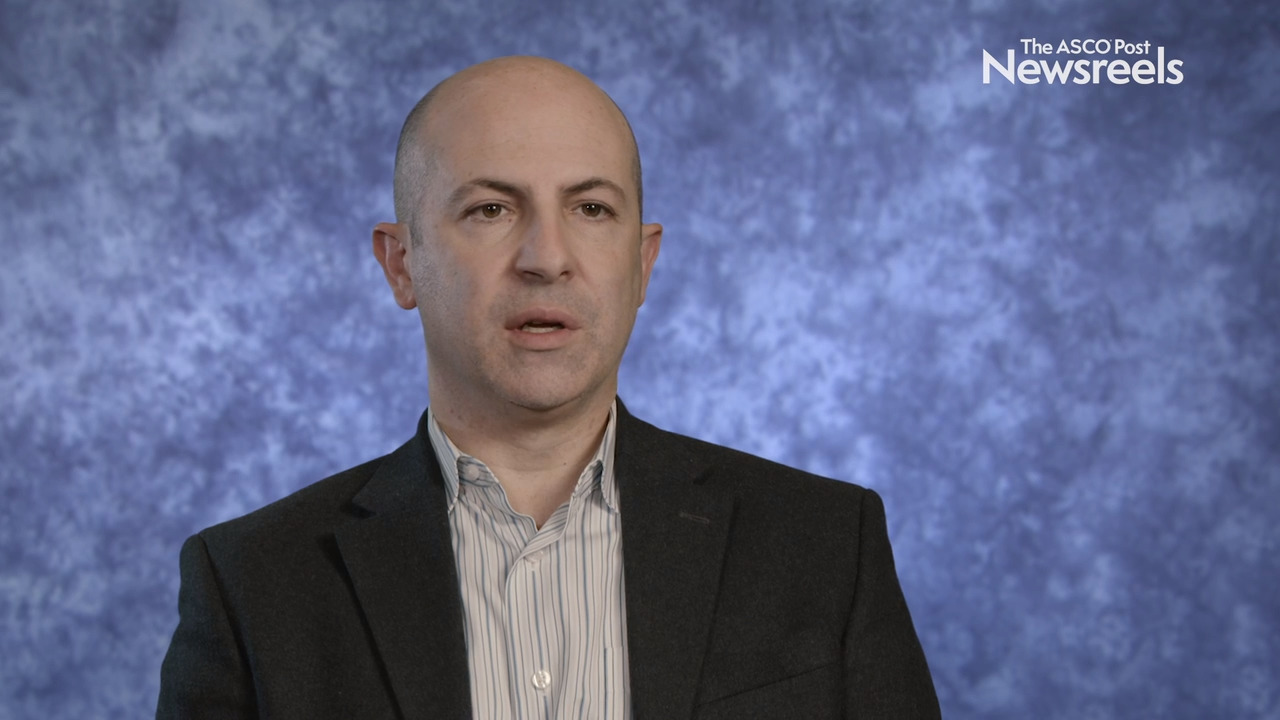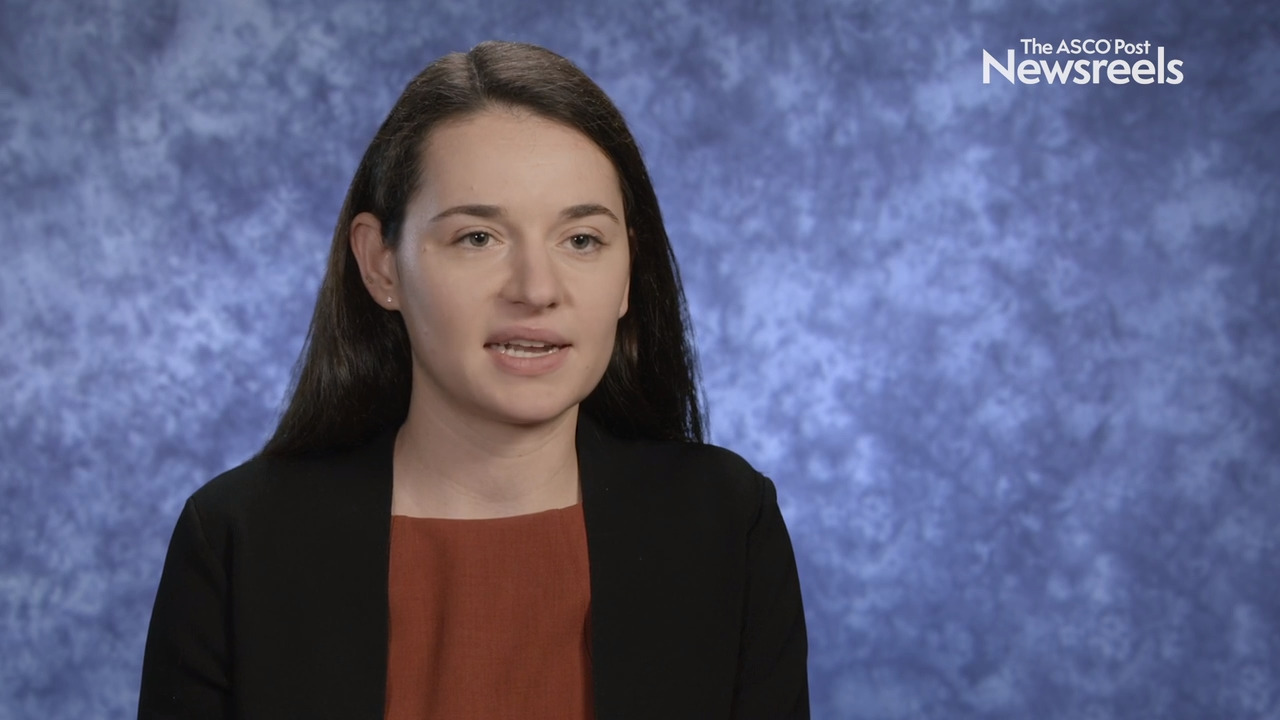Heinz-Josef Lenz, MD, on Metastatic Colorectal Cancer: Nivolumab Plus Low-Dose Ipilimumab as First-Line Therapy
2020 Gastrointestinal Cancers Symposium
Heinz-Josef Lenz, MD, of USC Norris Comprehensive Cancer Center, discusses how treating microsatellite instability–high/DNA mismatch repair–deficient metastatic colorectal cancer with nivolumab once every 2 weeks plus low-dose ipilimumab every 6 weeks may represent a new option for patients (Abstract 11).
Zev A. Wainberg, MD, of the UCLA Medical Center, discusses the first subset analysis of how a combined positive score in gastric and gastroesophageal junction cancers related to the efficacy of pembrolizumab in PD-L1–positive disease (Abstract 427).
Brian M. Wolpin, MD, of Dana-Farber Cancer Institute, discusses a noninvasive blood test evaluating methylation of circulating free DNA. In his study, the blood test detected multiple gastrointestinal cancers at a sensitivity of approximately 81% and a prespecified specificity of > 99%. It also accurately localized the tissue of origin across more than 20 cancer types (Abstract 283).
Van K. Morris, MD, of The University of Texas MD Anderson Cancer Center, discusses the COBRA study, which is examining circulating tumor DNA and its ability to predict whether patients with resected stage IIA colon cancer may benefit from adjuvant chemotherapy (Abstract TPS261).
Danielle S. Bitterman, MD, of the Harvard University Radiation Oncology Program and Massachusetts General Hospital, discusses an analysis of genomic and clinical data from 97 patients with pancreatic ductal adenocarcinoma with circulating tumor DNA. Mutations were most frequently detected in patients with locally advanced and metastatic disease (Abstract 753).
Eileen M. O’Reilly, MD, of Memorial Sloan Kettering Cancer Center, discusses phase II trial findings showing that cisplatin and gemcitabine, with or without veliparib, exceeded a prespecified response rate for patients with pancreatic adenocarcinoma and a germline BRCA/PALB2 mutation (Abstract 639).





